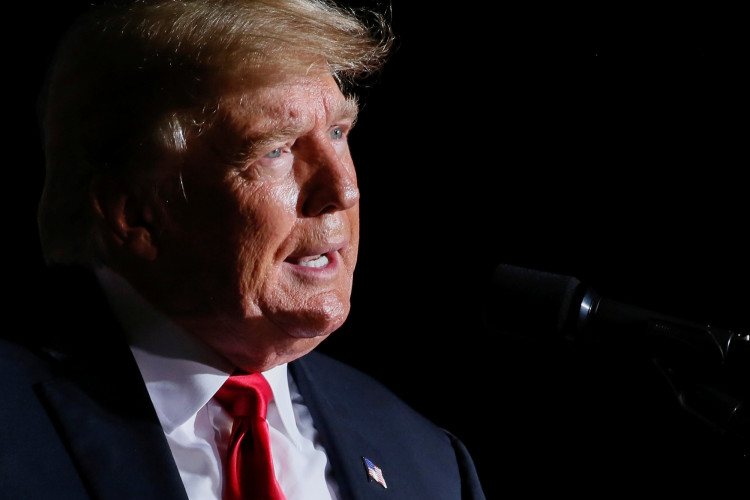In a recent whirlwind of statements and public appearances, former President Donald Trump has found himself at the center of a controversy regarding his remarks on Israel and its former Prime Minister, Benjamin Netanyahu. Responding to the backlash, Trump was quoted saying, "Despite our personal differences, I have always and will always stand with Israel."
At the heart of the matter is Trump's complex relationship with Netanyahu and Israel. The two leaders shared a close bond during Trump's tenure, with the former president taking several pro-Israel actions, such as moving the U.S. embassy to Jerusalem and recognizing Israeli sovereignty over the Golan Heights. However, the relationship seemed to have soured after Netanyahu promptly congratulated President Joe Biden on his 2020 election victory.
In a recent rally, Trump addressed this perceived slight. He expressed his disappointment with Netanyahu, stating, "Benjamin, you've let us down." This comment was widely perceived as a reflection of Trump's personal grievances rather than a policy stance, given the strong U.S.-Israel ties during his administration.
However, in an attempt to clarify his position and perhaps to quell the rising tide of criticism, Trump was quick to emphasize his unwavering support for Israel. "I've done more for Israel than any other president," he declared, underscoring his administration's pro-Israel actions and decisions. This assertion seemed to be a direct response to those who questioned his commitment to the Jewish state based on his comments about Netanyahu.
The political landscape in Israel has been tumultuous, with Netanyahu's long tenure coming to an end and a new coalition government taking the reins. Trump's comments can be seen in the context of these changes and the evolving U.S.-Israel relationship in the post-Netanyahu era.
From a broader perspective, Trump's remarks and subsequent clarification highlight the delicate balance world leaders must strike between personal relationships and national interests. "Leaders come and go, but our commitment to our allies remains," Trump remarked, emphasizing the distinction between his personal feelings towards Netanyahu and his policy stance on Israel.
In the realm of international diplomacy, where words carry weight and can influence alliances and geopolitical strategies, Trump's comments about Netanyahu and his subsequent defense of his Israel stance serve as a reminder of the intricate dance of diplomacy. As the U.S. and Israel navigate their relationship in a changing global landscape, the words and actions of their leaders, past and present, will undoubtedly continue to be under the microscope.
Furthermore, Trump's insinuations have been debunked by multiple sources. His claim that Hamas militants, or similar groups, are infiltrating the U.S. via its southern border lacks evidence. Fact-checking website Politifact rated this assertion as "pants on fire," indicating its strong disagreement. Terrorism experts and immigration policy specialists have also refuted Trump's claims, emphasizing that there's no evidence of Hamas militants crossing the U.S.-Mexico border.






